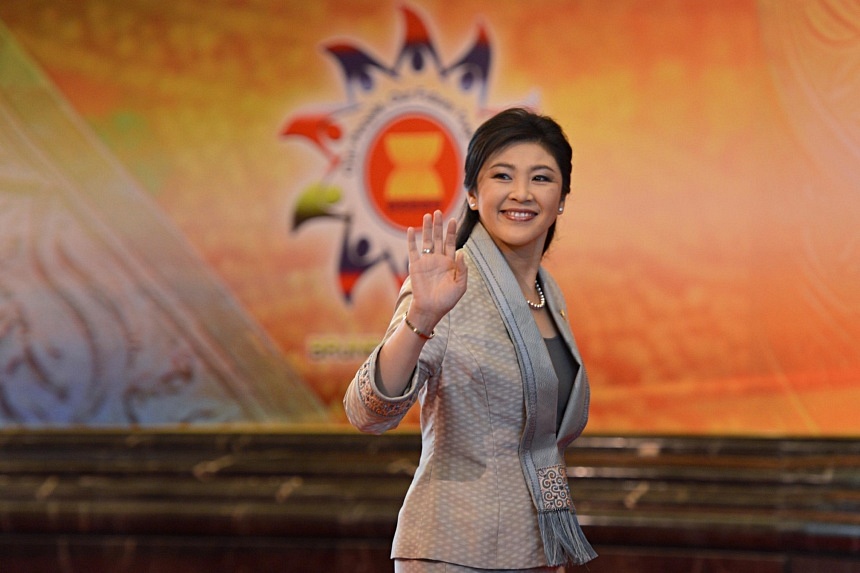
Updated
Nov 24, 2024, 04:15 PM
Published
Nov 24, 2024, 04:15 PM
JAKARTA - Indonesia will hold regional elections on Nov 27, in which its 203 million registered voters will choose more than 500 local leaders.
Campaigning has been going on since September. These polls follow the presidential and legislative elections held on Feb 14, where President Prabowo Subianto and Vice-President Gibran Rakabuming Raka secured more than 58 per cent of the vote.
While largely seen as focusing on local issues, regional elections are significant because those elected are not just potential national leaders, they can also influence how effectively the Prabowo administration’s programmes are delivered on the ground.
The Straits Times takes a closer look.
What are regional elections?
Indonesia’s regional elections, known as Pemilihan Kepala Daerah (Pilkada), are held every five years to elect local executive leaders.
In the 2024 edition, 545 positions are being contested, comprising posts for 37 governors, 93 mayors, and 415 regents. Voting starts at 7am and will close at 1pm. Official results will be announced between Nov 27 and Dec 16.
These elections are seen as vital to Indonesia’s decentralised political system, as they allow the local population to directly choose leaders who manage their region’s governance.
These leaders have the authority to make key decisions such as determining regional development and budgeting, rolling out public services, and deciding local regulations like zoning laws.
They are also able to influence how their various provinces attract and manage foreign investments, which are particularly important in parts of Indonesia that are rich in natural resources such as coal and nickel.
“These leaders could make the lives of businesses easier, or more difficult, through regulations, red tape, and whether (the businesses) would be (the leaders’) preferred industrial partners,” said Associate Professor Yohanes Sulaiman from Jenderal Achmad Yani University in West Java.
Which are the battles to watch?
Political observers will be training their attention on the Jakarta gubernatorial election.
The city is still regarded as the country’s political and economic hub, despite plans under way to move the capital to Nusantara in Kalimantan.
The Jakarta governor position is also seen as a stepping stone to the presidency.
Former president Joko Widodo served as the city’s governor for two years before he was elected to the country’s top job in 2014.
The Jakarta race also represents the broader struggle for political dominance between the big-tent coalition of Mr Prabowo’s Advanced Indonesia Coalition (KIM Plus) and former president Megawati Soekarnoputri’s Indonesian Democratic Party of Struggle (PDI-P), which won the Feb 14 legislative election and is the largest party.
The two front runners in the three-horse Jakarta race are the KIM Plus coalition’s Mr Ridwan Kamil, a former West Java governor, and former Cabinet secretary and PDI-P candidate Pramono Anung.
The third candidate, running independently, is Mr Dharma Pongrekun, a retired police commissioner-general.
A recent survey by Litbang Kompas, the research arm of media company Kompas, found that Mr Pramono was leading, with about 38.3 per cent of the vote, with Mr Ridwan close behind with 34.6 per cent.
Similar face-offs between KIM Plus and PDI-P are playing out in North Sumatra and Central Java.
What will the results mean for Indonesia?
The more KIM Plus leaders are elected on Nov 27, the easier it will be for Mr Prabowo and his team to roll out programmes they have promised.
One such initiative is the President’s free lunch programme. Considered to be one of his major campaign planks, Mr Prabowo has promised to help the poorest communities address the problem of malnutrition by providing free meals to all children and pregnant women.
The plan, for which the government has set aside 71 trillion rupiah (S$6 billion), has been piloted in schools in cities such as Jakarta and Semarang in Central Java. It aims to reach 82.9 million people by 2029, with an expected budget of 400 trillion rupiah.
PDI-P has no presence in Mr Prabowo’s Cabinet. The party secured 16.72 per cent of the vote in the Feb 14 legislative elections, ahead of KIM Plus’ Golkar, which came in second at 15.29 per cent, and Gerindra, which got 13.22 per cent.
This means that PDI-P remains the dominant political force in Indonesia’s legislature, enabling it to shape policies, influence law-making priorities, and possibly determine the allocation of leadership roles within Parliament.
Significant wins for PDI-P in the regional elections will bolster its ability to provide checks and balances to President Prabowo’s administration. This, say analysts, will mean greater scrutiny over government decisions.
Prof Yohanes also notes how the positions up for grabs at the Pilkada can be used as a “soapbox” for politicians seeking higher office.
For instance, Mr Widodo was elected mayor of Solo in 2005 and then governor of Jakarta. His son, Vice-President Gibran, was also elected mayor of Solo.
“Although regions vary in importance – for example, it is hard for a mayor of a small town in South Moluccas to become a household name – but in general, it is a good way to get yourself known,” said Prof Yohanes.

 By The Straits Times | Created at 2024-11-24 08:31:04 | Updated at 2024-11-24 11:17:36
3 hours ago
By The Straits Times | Created at 2024-11-24 08:31:04 | Updated at 2024-11-24 11:17:36
3 hours ago








